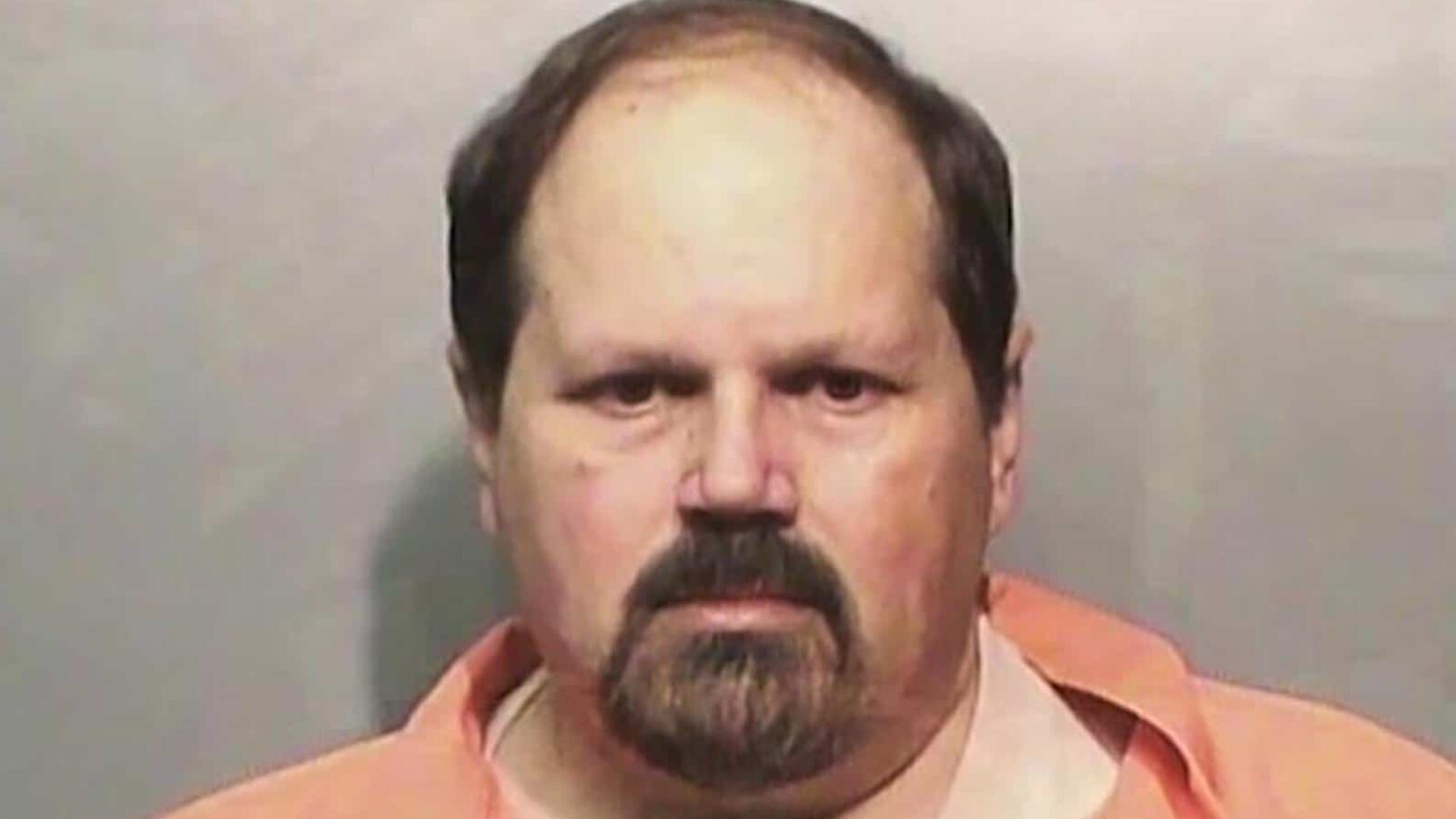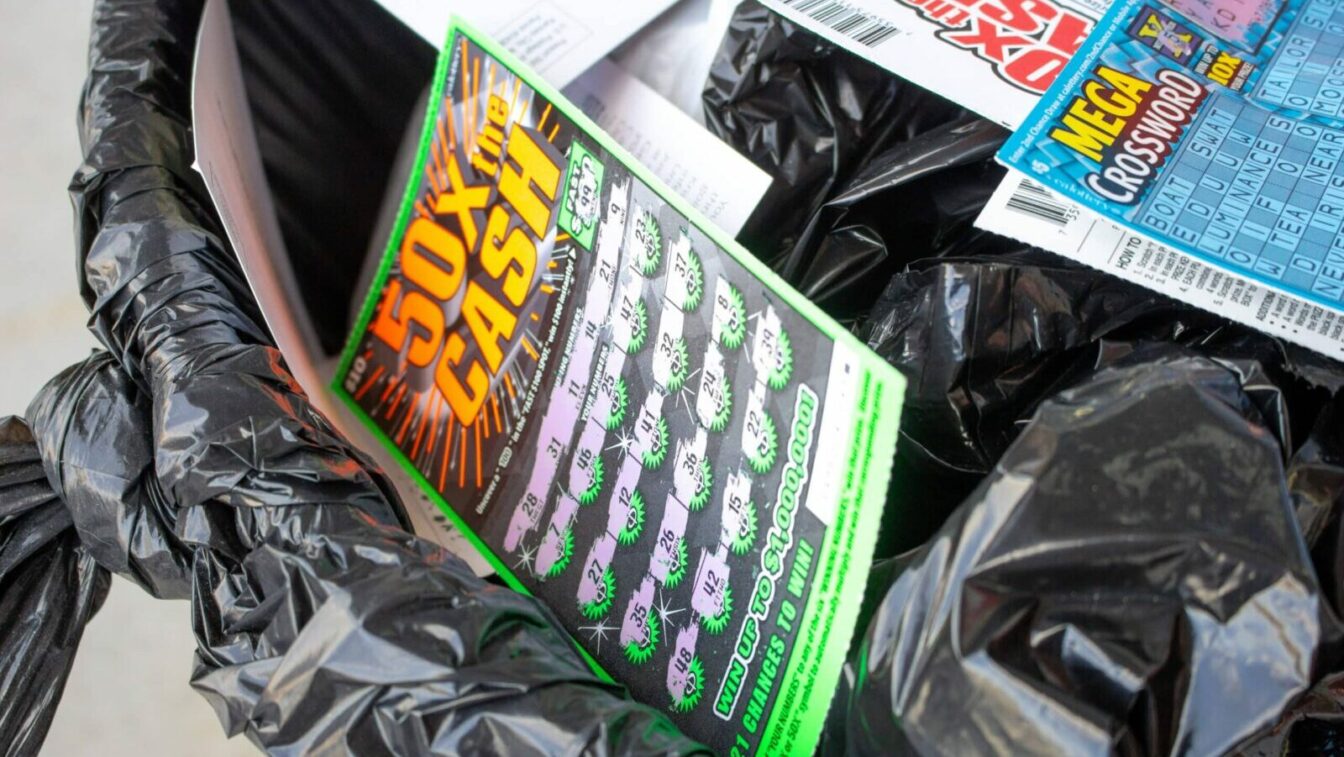The Sordid Tale Of Eddie Tipton And The Granddaddy Of All U.S. Lottery Scandals
For just a three-figure investment, former lottery security head Tipton was virtually assured of a seven-figure payout.
5 min

The 45 states with a legal lottery all have regulators in place whose job it is to ensure the integrity of the results, so that the public has faith in the system.
But since the modern era of American lotteries arrived a half-century ago, the industry has, on occasion, been the victim of fraud. The common denominator in most of these scandals? They turn out to be “inside jobs” perpetrated by some of the very people assigned to guarantee the randomness of the winning lottery numbers.
And of all those frauds, the most memorable and melodramatic was pulled off — for a while — by none other than the head of the Multi-State Lottery Association’s (MUSL) information technology security team.
In fact, a book about the saga published in 2019 was titled The $80 Billion Gamble: The Inside Story of How a Suspicious Ticket, Hot Dogs, and Bigfoot Foiled the Biggest Lottery Fraud in U.S. History.
Eddie Tipton, who worked at the association’s office in the Des Moines, Iowa suburb of Urbandale, has said that after a comment made to him in 2005 by a naive co-worker (who was never accused of wrongdoing by authorities), “it was like a little seed that was planted.”
That “seed” was simply an observation that since Tipton wrote the software for the lottery association, the 41-year-old bachelor was in a position to improve his odds to a massive degree.
Just weeks later, Tipton decided to act on his golden opportunity. After some experimentation, Tipton realized he could reduce the 1-in-5-million odds of winning the $4.8 million jackpot in Colorado on Nov. 23, 2005 to just 1 in 200.
For just a three-figure investment — buying 200 tickets to cover all of the combinations that could possibly win — Tipton was virtually assured of a seven-figure payout.
Bigfoot enters the picture — as do the hot dogs
Rig the lottery? Impossible, right? Not so! Eddie Tipton did it! Find out more on today's @misfortunepod with @adamtodbrown and @Countless1000s!
iTunes: https://t.co/QeKaXyLV1I
Google: https://t.co/aYJNKvo6Lf
Spotify: https://t.co/m7PRNUlZjN
Soundcloud: https://t.co/pmrk6rcCj5 pic.twitter.com/FqLy4vuhJZ— Unpopular Opinion (@Unpops) May 2, 2018
Tipton’s brother Tommy, who unlike Eddie still resided in their native Texas, was a nearly lifelong member of a tiny but dedicated community of true believers that the legendary creature called “Bigfoot” actually exists. And with Tommy planning a late-November trip that year to hunt for the creature, the plot was hatched.
A pal of Tommy Tipton was recruited to cash the winning ticket — what turned out to be one of three that were cashed in to share the prize.
The following year, Tommy had a serious accident while searching for Bigfoot, falling more than three stories from a tree stand. Around that same time, the FBI had learned that this same hunter was trying to exchange $450,000 in consecutive bills for random ones. Questioned by the FBI in the hospital, Tommy explained that his wife considered lottery play to be gambling, and thus immoral. He further explained that the money came from the lottery jackpot in Colorado this his friend had cashed.
The interview proved unfruitful, as the FBI agents were unaware of brother Eddie Tipton’s job, which would have been eyebrow-raising given the circumstances of the jackpot win.
With that bullet dodged, Eddie Tipton continued his felonious ways, hitting major jackpots in five different states across the Midwest. The big one? A $16.5 million Hot Lotto win in Iowa.
That’s also the prize that ultimately did Tipton in.
That’s because on Dec. 29, 2010, the programmer crossed a line as he purchased two play slips for Hot Lotto, two hot dogs, a soda at 3:24 p.m. at a QuikTrip convenience store in Des Moines that is located just off Route 80, the renowned cross-country highway.
MUSL employees were not even permitted to buy a lottery ticket, much less cash in one. So Tipton enlisted a close friend to cash the ticket, along with strict instructions not to wait until the last minute because, Tipton knew, that might produce heightened scrutiny.
Yet the friend instead waited until only two hours before the one-year claim deadline expired to turn over the ticket to astonished lottery officials. As the third-largest prize in Hot Lotto history, the increasing likelihood that no one would claim the prize had proved to be catnip for media across Iowa.
As in most states at that time, the names and addresses of major prize winners were required to be made public. After all the publicity that had rolled out before the last-day producing of the ticket, public interest was fairly intense.
Still, the name was not revealed, and the media and law enforcement officials moved on for a couple of years. The law firm that had produced the jackpot ticket had curiously withdrawn the claim for its share of the money.
Fresh law enforcement eyes prove critical
Enter Rob Sand, a new prosecuting attorney for the Iowa Attorney General’s Office and later author of his own book on the case called The Winning Ticket: Uncovering America’s Biggest Lottery Scam.
After inheriting the lottery mystery in 2014 from his retiring boss, Sand decided that October to try a new tactic.
“We only had one bullet left in our revolver,” Sand once told The New York Times Magazine, “and that was releasing the video.”
The footage was grainy, merely showing a middle-aged, overweight man. But within the news release was a 74-second clip of surveillance footage from the ticket purchase — and yet another unlikely plot twist. In a mistake that ultimately proved fatal to his scheme, Tipton had carelessly engaged in small talk with the cashier in his distinct voice.
Within days, a Maine Lottery employee who was sent the video said she was sure that voice belonged to a man who had once visited their offices to — oh, the irony — engage in a security audit.
Even more importantly, a longtime acquaintance of Tipton who worked at the Iowa Lottery also recognized the voice, with a co-worker quickly confirming that belief.
Sand, who had a previous background in computer software and security, deduced that Tipton must have secretly installed a self-deleting “rootkit” piece of software that rigged the lottery enormously in his favor. And once he learned that the computers used in a Tipton lottery win in Wisconsin in 2007 were still in storage, all it took was a computer expert to find the offending code.
On Jan. 15, 2015, Tipton was charged with two counts of felony fraud. He ultimately was convicted and sentenced to up to 25 years in prison. Tommy Tipton was sentenced to 75 days in jail for his role in the scheme, while the friend who tried to cash the Iowa winning ticket received a plea deal of six months home confinement in exchange for his testimony against the brothers.
Lesson learned, lotteries?
Perhaps the strangest part of the strange saga is how and why Tipton got the job in the first place, given that he had previous convictions for taking part in a burglary at a warehouse — as well as for another incident when he was found to have stolen computer software from a department store. Talk about a red flag!
Yet somehow, the MUSL hired him anyway — a great surprise, Tipton later said, because he had informed an agency official during his interview in 2003 of his previous misdeeds.
The Iowa Lottery bars the hiring of prospective employees with criminal conviction, but at the time the association somehow did not.
A former Iowa Attorney General, Thomas Miller, in an interview later told Game Show Network that he was baffled by the blunder.
“A thief is a thief,” Miller said. “If he’ll steal $100, he’d be glad to steal $16 million, and yet Multi-State Lottery officials actually put him in the position of being director of security for the multi-state lottery, inviting the fox into that chicken coop.”
Epilogue
In 2022, Tipton was paroled after serving just five years in prison. That was in spite of his release being delayed for six months because of what prison officials said was a fight with another inmate.
The Tipton brothers were ordered to pay more than $2 million in restitution for their multi-year, multi-state scheme.
Eddie Tipton was released just weeks before a hearing was scheduled regarding his claim that the restitution order was illegal because he did not have that kind of money available. In that same filing, Tipton insisted he was innocent of the charges and had been improperly coerced into his confession under great duress.
It’s not clear how much, if any, restitution was ever paid.
In 2023, former Iowa Lottery CEO Terry Rich, co-author of The $80 Billion Gamble about how the Tipton scam had threatened to unravel the entire U.S. lottery industry, told Axios that he believes that artificial intelligence had been used to create a pair of books sold on Amazon and Kindle that plagiarized his work and undercut his sales by offering a version of his book at a slightly cheaper price. Both companies subsequently removed the offending knockoffs, derailing a scam that stole the intellectual property of a book that, well, had been written about a scam.





